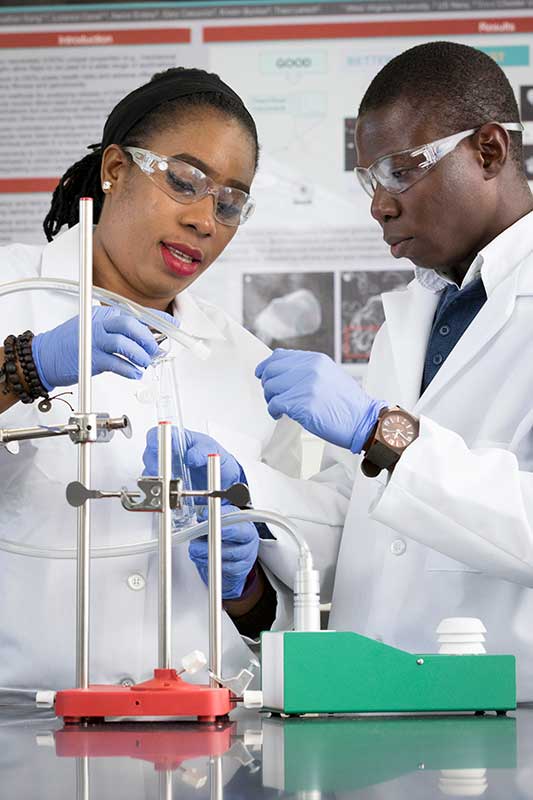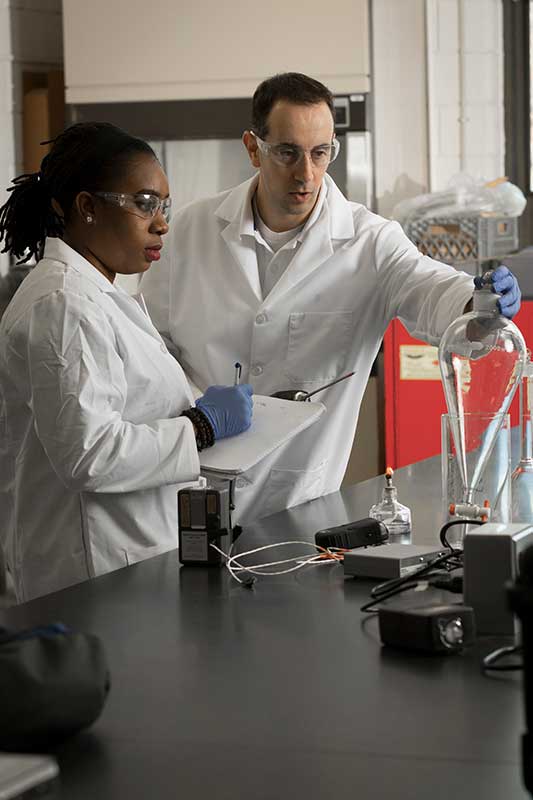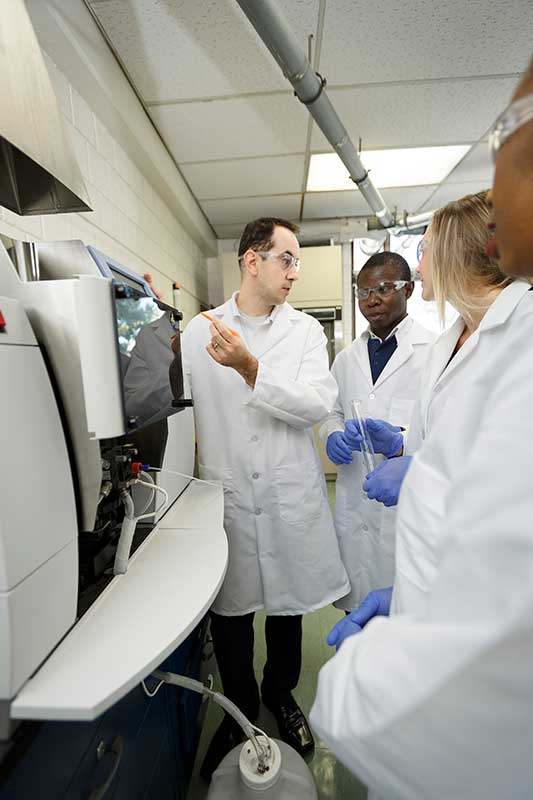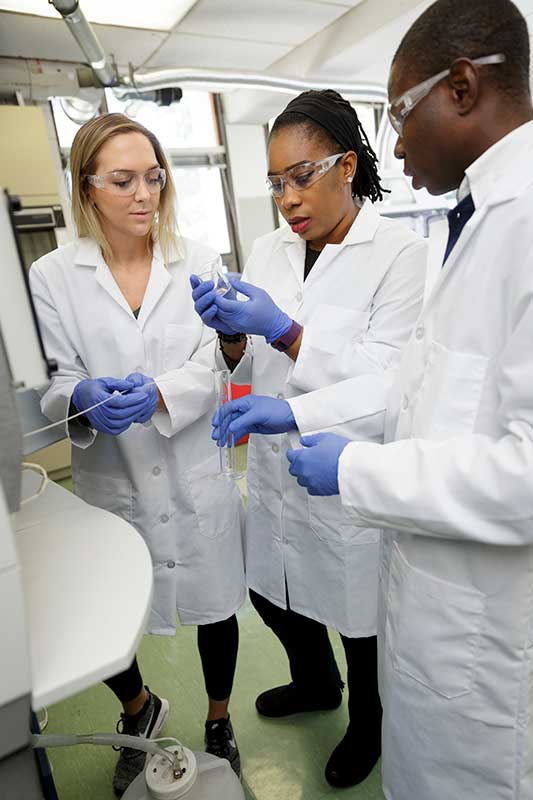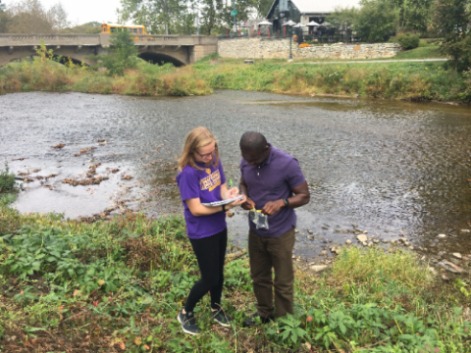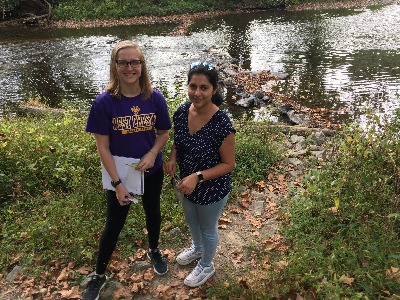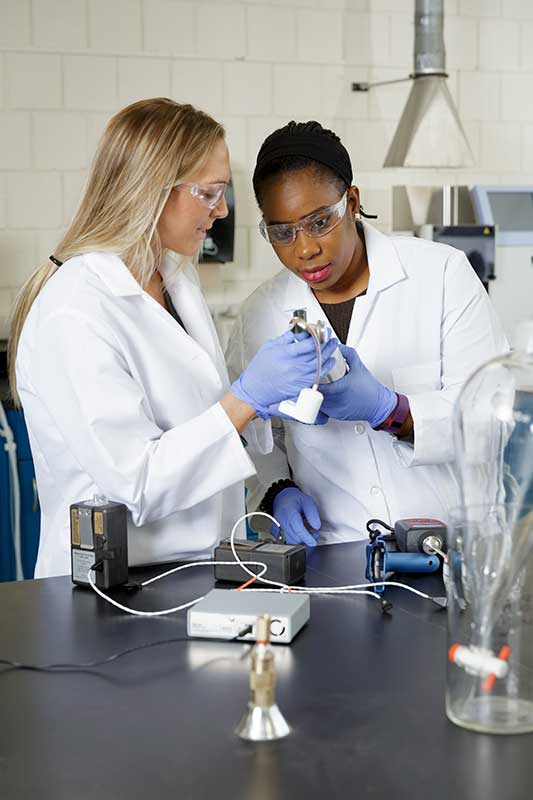Environmental Health
Environmental Health Concentration – hybrid course format
The MPH in Environmental Health is delivered in a hybrid format, with in-person concentration courses and 100% online asynchronous core courses (with in-person option for two core courses). We are a nationally-accredited MPH program that prepares advanced students for an exciting career working to solve the most pressing environmental problems of today and tomorrow. Environmental Health professionals anticipate, recognize, evaluate and control hazards that can affect human health in both the natural and built environment. Environmental Health professionals are scientists who apply their skills to solving environmental problems. Our graduates are in demand and are widely employed in the pharmaceutical industry, hospitals, universities, environmental consulting firms, food supply and distribution companies, state and federal government, and county health departments. Experts trained in Environmental Health are increasingly short in supply but high in demand; for a brief illustration of what we do visit the Association of Environmental Health Academic Programs.
For more background about what we do, who hires our students and what kinds of job opportunities await them, take a look at some of these links:
- Association of Environmental Health Academic Programs (AEHAP): What is Environmental Health?
- Careers in Environmental Health
- National Institute of Environmental Health Sciences (NIEHS): Environmental Health; Topics
- Centers for Disease Control (CDC): Environmental Health
- National Environmental Health Association, NEHA
- American Industrial Hygiene Association (AIHA): Industrial Hygiene Careers
- Environmental Health News
Further Information
- Dr. Melanie Vile
- 610-436-2360 (SECC 277)
- Email Dr. Melanie Vile
Learning Objectives / Concentration Competencies
Upon graduation, a student with an MPH in Environmental Health should be able to:
- Identify illness and injury causing agents in workplaces, residences, health care facilities and other institutions, and the outdoor environment.
- Measure biological, chemical and physical disease agents in any environment and assess compliance with environmental regulations and professional standards.
- Analyze, interpret, and evaluate toxicological, epidemiological, and environmental exposure data.
- Quantitatively assess risk using mathematical models and communicate risk information to populations served.
- Integrate the legacy of environmental (in)justice and other historical social inequities into sustainable policy decisions for future generations.
- Determine how climate-change and sustainability policies have disproportionately affected vulnerable groups.
Advising Sheets
This advising sheet contains updated core and concentration course rotations and formats starting Fall 2025. Please note that the course requirements remain unchanged.
Post-MPH Career Opportunities
Many of the skills gained through the Master of Public Health are transferable across a wide range of career paths. Here are some of the positions our MPH-Environmental Health graduates have accepted:
- Business Owner, Laboratory Director, & Analytical Microscopist
- Chief Microbiologist
- COVID-19 Outbreak Surveillance Investigator
- Executive Director
- Research Associate/Senior Researcher/Study Manager
- Compliance Safety & Health Officer
- Disease Investigation Specialist
- Doctoral Student (PhD or DrPh)/Postdoctoral Research Scholar
- Emergency Management Planner
- Environmental Health & Safety Manager
- Environmental Remediation Manager
- Epidemiology Program Specialist
- Inspector of Industrial Waste and Backflow Compliance
- Senior Lab Technician
- Laboratory Examiner
- Leveraged Industrial Hygiene Specialist
- Manager of Wastewater Operations
- Occupational Health & Safety Manager
- Senior Environmental Health Safety Specialist
- Senior Food Safety Analyst
- Senior Study QC Analyst
Our graduates can be found in the Philadelphia area and beyond. Here are some of the organizations where you’ll find WCU MPH alumni:
- Aqua America
- AstraZeneca
- Bioclinica
- Burlington County Office of Emergency Planning
- Chester County Department of Health
- Dow Chemical Company
- Kinder Morgan, Inc.
- Pennsylvania Department of Health, Bureau of Laboratories
- Penn Medicine
- Philadelphia Water
- Occupational Safety & Health Administration
- Wawa, Inc.

